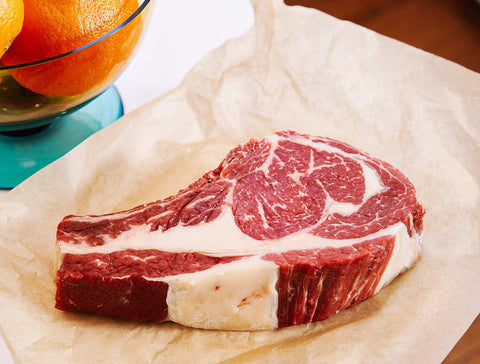A question that I am commonly asked is “Why do we age meat?” We age meat, beef in particular for a couple of reasons one is to amplify the flavour in the meat and the other is to make the meat more tender. Ageing of meat can be done in two ways, firstly by dry ageing and secondly wet ageing.

Dry ageing is when the meat is hung or placed on a rack for anywhere up to 8 weeks. In this process, either a whole body or just the prime cuts are hung in the cool room at a constant temperature normally around 1 to 2 degrees. Climate control within the ageing room is of high importance, as the aim of dry ageing is to reduce the levels of moisture within the product, therefore, amplifying the flavour. This process of reducing the moisture levels of the product requires that you use a very high grade of beef with a good even fat cover.
As the moisture in the muscle is evaporated, the concentration of the flavour and taste increases. While the meat is hanging the enzymes in the muscle break down the protein and connective tissues with the muscle which ultimately leads to a more tender product.
Throughout the dry-aging process, the meat will form an outer layer or crust. This is a fungal growth (mould) that forms. It is not detrimental to the product but in fact helps the enzymes with the tenderization of the muscle. This outer crust is well removed before the meat can be sold.
Dry ageing is only down at speciality butchers as it is very high cost and fetches a high price. This is due to the time it takes and also the large amount of weight loss during the process. Ageing can take anywhere up to 60 days and a loss of up to a third or more of the product is typical just through moisture loss in the muscle.
Wet ageing is when the product is aged under vacuum seal. This is the preferred method for most meat suppliers and butchers in Australia as it does not take as long and there is little to no weight loss. The product can also be conveniently stored and kept for long periods of time.







